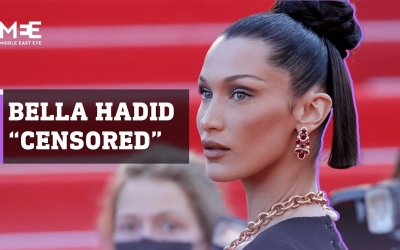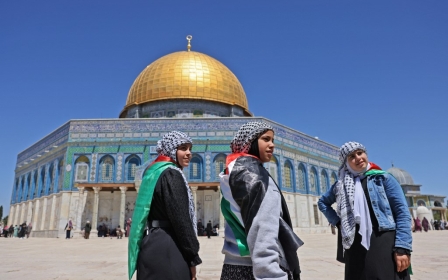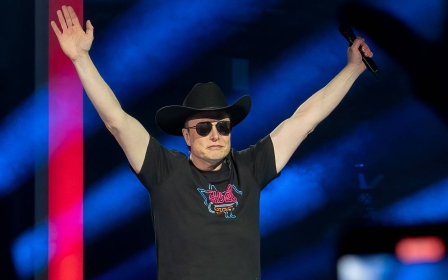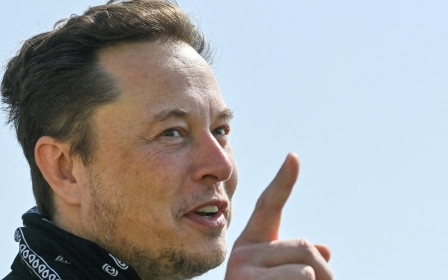Palestinian activists wary of Elon Musk's Twitter acquisition
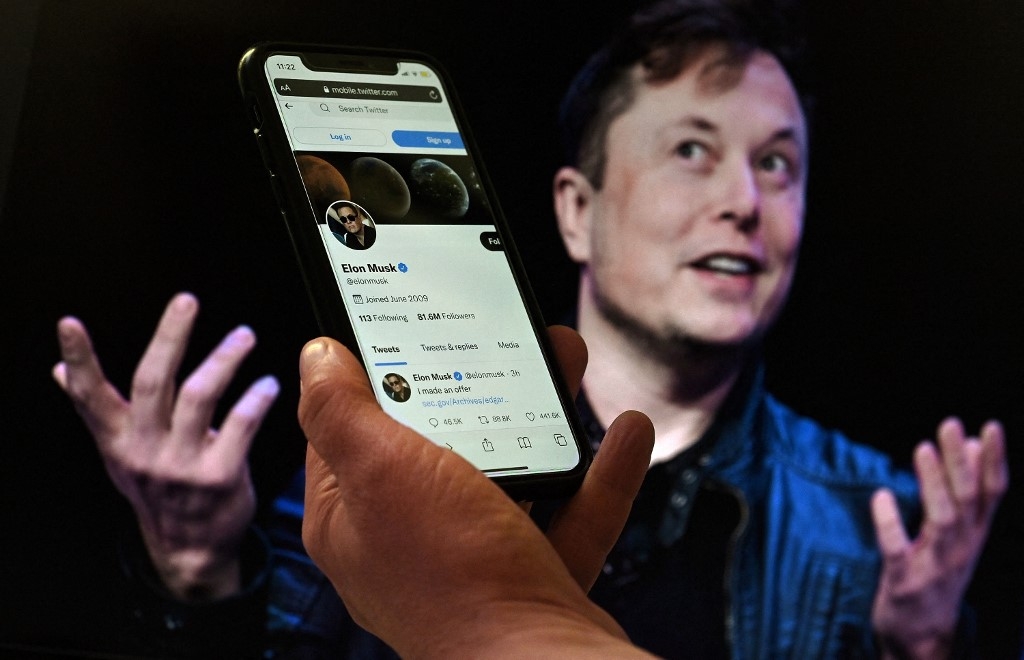
Elon Musk was promoting himself as a "free speech" campaigner long before his $44bn Twitter acquistion bid was announced this week. But activists have expressed doubt over whether that "freedom" will extend to the online discourse relating to the Palestinian struggle, which they say has often been censored on the social media platform.
The Tesla and SpaceX chief executive, whose wealth hovers around $260bn, struck the deal on Monday, though it is not expected to be finalised for another three to six months. Although he has yet to announce his plans for the platform, Musk has boasted of the importance of free speech and has frequently criticised Twitter's policies.
"Free speech is the bedrock of a functioning democracy, and Twitter is the digital town square where matters vital to the future of humanity are debated," he said in a statement. "I also want to make Twitter better than ever by enhancing the product with new features, making the algorithms open source to increase trust, defeating the spam bots, and authenticating all humans."
'The repression Palestinians have faced across social media platforms has occurred because of private business interests exerting a stranglehold on political speech and exchange'
- Omar Zahzah, PYM
Just last week, Musk sparred with Saudi Prince Alwaleed bin Talal on Twitter after the royal said he was rejecting the entrepreneur's cash offer for the social media platform - because it was too low.
Musk responded: "How much of Twitter does the Kingdom own, directly & indirectly? What are the Kingdom's views on journalistic freedom of speech?"
For activists and organisations fighting for an end to the Israeli occupation of Palestinian territories, the idea of posting freely without fear of being censored seems too good to be true.
The Palestinian Youth Movement (PYM), a grassroots organisation, says it has faced frequent "shadowbanning" - a term for the practice of concealing a user's content without notifying that user - and says it has had multiple posts restricted on social media. But PYM member Omar Zahzah says Musk acquiring Twitter is nothing to be celebrated.
"It's impossible to know exactly what Musk buying Twitter will mean for anti-Zionist speech on the platform, but I think all activists need to be wary because a public communications platform being concentrated in the hands of one individual does not bode well for free speech," he told Middle East Eye.
"All of the repression Palestinians have faced across social media platforms has occurred because of private business interests exerting a stranglehold on political speech and exchange.
"Rather than being some kind of enabler of democracy, social media has come to be the epitome of political silencing and repression as tech giants have collaborated with various oppressive governments, including the Israeli government, to censor and delete content that exposes their true oppressive character."
While it remains unclear where Musk stands on the Israel-Palestine issue, in 2018, he took a trip to Israel and met Prime Minister Benjamin Netanyahu at his private residence to discuss how to bring future technology to Israel, Business Insider reported.
Netanyahu later said: "I met with Elon Musk this morning. He told me that Israel was a technological power, and that he appreciates what we're doing here."
Censorship
When violence escalated in occupied Jerusalem last year after residents from the Sheikh Jarrah neighbourhood were threatened with eviction, many activists complained that their posts about the situation were being censored.
The Twitter account for Palestinian writer Mariam Barghouti, who was on the ground reporting on protests against the expulsion of Palestinians from their homes in East Jerusalem, was also temporarily suspended.
"The issue isn't the suspension of my account, rather the consideration that Palestinian accounts have been censored generally - but especially these past few weeks as we try to document Israeli aggressions on the ground," Barghouti told Vice News.
Zahzah believes the track record of companies silencing such voices will continue under Musk's ownership, adding that the matter was linked to profit, "not justice, liberation, or human rights":
"We're supposed to believe that a South African settler billionaire coming from family apartheid emerald wealth will somehow conduct himself in such a way as to protect Palestinian liberation rhetoric?"
On Twitter, one user, @JoshuaPotash, documented some examples of Musk's record regarding "free speech" being questionable, including the firing of a Tesla employee after he posted a YouTube video showing faults in the company's self-driving system, the illegal firing of a worker for union organising, threatening workers with loss of stock options if they organised, and the hacking of a junior engineer who blew the whistle on waste generation at Tesla.
"Elon Musk purchasing Twitter is just the latest development in billionaires' ownership of traditional media and social media alike," Ahmad Abuznaid, the executive director of the US Campaign for Palestinian Rights, told MEE.
"As a movement for justice, we know all too well how these platforms have been used to censor or shadowban Palestinian advocacy. A new billionaire owner does not make us feel confident that this dynamic will change anytime soon."
Middle East Eye reached out to Twitter for comment but had not received a response by the time of this report's publication.
Not much faith
Zahzah does not know clearly where exactly Musk stands on free speech and how it may affect Twitter, but PYM and other organisations will continue to post there about the Palestinian struggle and the Israeli occupation, because, he says, they have no other choice.
'We have seen for years what silencing ourselves has done for the movement - nothing. At this point, we have nothing to lose'
- Jinan Deena, ADC
"For all of its dangers, social media has become an indispensable platform. It helps us to reach across very real divides of geography and distance to communicate and connect with similarly liberation-minded Palestinian and Arab youth," he said.
"And when you post unapologetically about Palestinian liberation, it helps normalise it so that more and more individuals feel comfortable doing so and the message spreads."
Jinan Deena, the national organiser for the Arab-American Anti-Discrimination Committee (ADC), suggests that anti-Zionism posts are conflated with anti-Semitism and are therefore immediately taken down. But despite the fallout, she will continue to post about the brutality faced by Palestinians and pushes others to continue doing the same.
"I don't have much faith in billionaires spouting generic free speech endorsements. We've also seen Facebook and Instagram say the same thing," she said.
Deena believes that the Palestinian struggle has always been - and will continue to be - a controversial topic, and censorship over posts related to the issue on Twitter will not ease under Musk's leadership.
"I think we are done with minimising our struggle - whether out of fear of attacks online, censorship, or retaliation in the workplace or academia," she said.
"We have the power to take back the narrative. We have seen for years what silencing ourselves has done for the movement - nothing. At this point, we have nothing to lose."
This article is available in French on Middle East Eye French edition.
Middle East Eye propose une couverture et une analyse indépendantes et incomparables du Moyen-Orient, de l’Afrique du Nord et d’autres régions du monde. Pour en savoir plus sur la reprise de ce contenu et les frais qui s’appliquent, veuillez remplir ce formulaire [en anglais]. Pour en savoir plus sur MEE, cliquez ici [en anglais].


